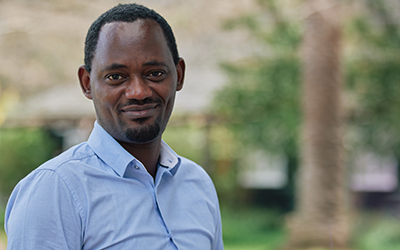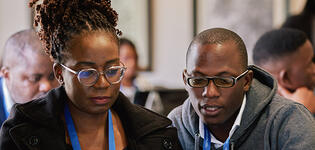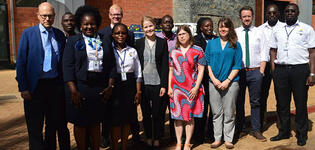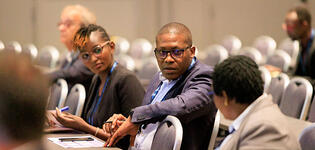Blog
Experiences from UNU-WIDER Winter School 2022
One of the best global training programmes in tax research
Across Africa, governments are now waking up to the fact that taxation targets or economic development goals will not be met without policies that are based on scientific evidence. More effective revenue collection is required to achieve broad-based growth and fiscal sustainability.
This paradigm shift comes as research in tax administration in Africa is becoming a burgeoning field of inquiry —one that is now even more important as countries struggle to recover from some of the most adverse economic shocks in modern times. These include the economic fallout from the COVID-19 pandemic and the ongoing war in Ukraine, which has increased the price of energy and created critical shortages of essential commodities such as wheat, grains, and fertilizers.
The UNU-WIDER’s Winter School on tax policy research
 It is in this context that the 2022 UNU-WIDER Winter School on tax policy research was organized in collaboration with the University of Stellenbosch to research how to design better tax policies and administrative measures to finance national development. The UNU-WIDER Winter School is one of the best initiatives supporting revenue authorities on the continent to improve revenue collection capacity through the advancement of tax research.
It is in this context that the 2022 UNU-WIDER Winter School on tax policy research was organized in collaboration with the University of Stellenbosch to research how to design better tax policies and administrative measures to finance national development. The UNU-WIDER Winter School is one of the best initiatives supporting revenue authorities on the continent to improve revenue collection capacity through the advancement of tax research.
Speaking as an attending researcher from a revenue authority in Rwanda, I found that it was an immersive experience, with exposure to international best practices in tax research. This included a birds-eye view of how eminent scholars understand taxation issues and come up with well-researched evidence to support better policymaking.
The hybrid programme — which started with a 3-day Stata bootcamp and was followed by a week of in-person classes — employed a hands-on and highly practical learning environment that covered advanced contemporary research methods, techniques, and analysis tools.
In person with leaders in the field
The presentations and materials used during the training provided international evidence on the challenges facing taxation, and on how these challenges are —or can be— addressed. In addition, all references to the academic work on key topics were available, and this is useful to researchers like myself that need to understand what is known internationally on these topics.
On top of the refresher course on Stata, the course taught basic but fundamental statistics concepts and techniques for systematic policy evaluation. It covered a broad range of the key topics in taxation, such as measurement of the tax gap, the need for efficient and equitable tax systems, optimal taxation, informality, and issues affecting international tax, like transfer pricing.
The course provided opportunities to listen and learn from people who are leaders in their field and passionate about tax research.
Further, the course provided an opportunity to listen and learn from people who are leaders in their field and passionate about tax research. This training approach was more efficient and inspiring than other methods of learning, where you have to figure out things on your own, in isolation.
A lifetime opportunity to connect with fellow researchers
Another important feature of the UNU-WIDER Winter School was that it created an opportunity for the participants to discuss and share experiences with colleagues from different countries on the continent. This is not only conducive for participants to learn from other’s experiences, but it also created a lifetime opportunity to connect with fellow researchers on the continent. This networking opportunity will foster continued mutual learning and more research collaborations in the future.
John Karangwa is Head of the research and policy analysis unit at the Rwanda Revenue Authority (RRA). He attended the UNU-WIDER Winter School on tax policy research in June-July 2022.
The views expressed in this piece are those of the author(s), and do not necessarily reflect the views of the Institute or the United Nations University, nor the programme/project donors.
 Join the network
Join the network









